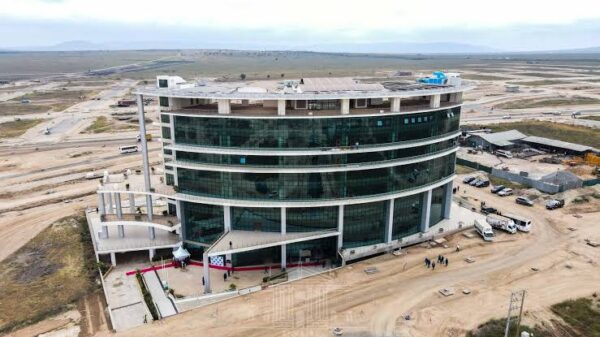WASHINGTON, Feb 21 – President Barack Obama\’s administration on Friday moved to quash rumors that troubled US banks will be nationalized as the shares of financial institutions took another beating in the market.
"This administration continues to strongly believe that a privately held banking system is the correct way to go," White House spokesman Robert Gibbs told reporters amid speculations that Bank of America and Citigroup are among banks facing imminent nationalization.
The US Treasury Department also rejected the market speculation that sent shares deeper into six-year lows Friday.
"There are a lot of rumors in the market, as always, but you should not regard these as any indication of the policy of this administration," said a Treasury spokesman.
He recalled that Treasury Secretary Timothy Geithner had made clear that the administration would work to keep the embattled financial system in private hands.
Gibbs also stressed that the banking system, shaken by a home mortgage meltdown at the epicenter of global turmoil, would be "regulated sufficiently by this government."
The Obama administration\’s reassurance appeared to allay somewhat Wall Street fears that sent banking stocks plunging to new lows following their rout a day earlier, which had pulled down the key Dow stock index to its worst level in six years.
"It seems that commentary from the Obama administration on the potential nationalization of privately held banks has eased some fears on Wall Street," said Joseph Hargett of Schaeffer\’s Investment Research.
Senior Democratic Senator Christopher Dodd, who heads the Senate banking committee, also said the Democratic administration was seeking to avoid nationalizing banks but did not rule out a short-term state takeover.
"I don’t welcome that at all, but I could see how it’s possible it may happen," Dodd said in an interview on Bloomberg Television. "I’m concerned that we may end up having to do that, at least for a short time."
The commentary from Washington sparked a pullback by the Dow Jones Industrial Average, which recovered more than 153 points, or about 2.1 percent, at one stage, Hargett said.
In fact, the Dow briefly hit positive territory before breaching into negative territory again, closing down 100.28 points, or 1.34 percent, at 7,365.67.
Shares in Citigroup and Bank of America, which have received a combined 90 billion dollars in capital injections from the government in the past four months, tumbled sharply Friday after a turbulent week for financial stocks.
"Today’s session was highly volatile, reflecting fear about the future of the financial system," experts at Charles Schwab & Co wrote.
Citi plummeted 22.31 percent to close at 1.95 dollars and Bank of America dropped 3.56 percent to 3.79 dollars.
The market capitalization of the two banks had eroded so rapidly this week that it has been eclipsed by state funds injected into them, giving the government de facto control of the institutions, analysts said.
"The two banks are implicitly nationalized, which is what is rocking investors in the financial sector," said Gregori Volokhin, a strategy chief at Meeschaert New York.
The US government has injected 45 billion dollars each into Citigroup and Bank of America to prevent their collapse in exchange for preferred stocks, without voting rights.
The government said it would conduct "stress tests" on ailing financial institutions ahead of any further capital injections and removal of "toxic" assets from their strained balance sheets.
Given the battering their shares took early Friday, the capitalization of Citigroup is hardly more than 10 billion dollars, while that of Bank of America is 17 billion dollars, well below the federal government\’s holdings.
For Volokhin, it is "creeping nationalization."
"It\’s necessary to have clarity on the situation," he said. "And for things to be clear, a temporary nationalization is in the cards, which will allow, when things improve, the government to exit without having lost enormous sums," he said.
The Obama administration, while stressing the need for the banking system to remain under private control, has not ruled out nationalization in an apparent move to keep all options on the table.
When Gibbs said Friday that Obama believed "a privately held banking system regulated by the government is what this country should have," reporters sought clarification whether he meant the president would not nationalize banks.
"It\’s hard for me to be clearer than where I just was," Gibbs said.


































